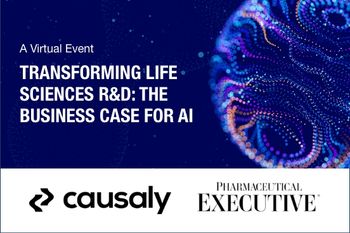
Interpreting Deep Neural Networks Toward Trustworthiness
Thursday, April 7, 2022 at 11am EDT Deep learning often achieves performance at the cost of interpretability. Discover methods for trustworthy interpretation during this webinar.
Register Free:
Event overview:
Recent deep learning models have achieved impressive predictive performance by learning complex functions of many variables, often at the cost of interpretability. This webinar first defines interpretable machine learning in general and introduces the agglomerative contextual decomposition (ACD) method to interpret neural networks.
Extending ACD to the scientifically meaningful frequency domain, an adaptive wavelet distillation (AWD) interpretation method is developed. AWD is shown to be both outperforming deep neural networks and interpretable in two prediction problems from cosmology and cell biology. Finally, a quality-controlled data science life cycle is advocated for building any model for trustworthy interpretation, and a predictability computability stability (PCS) framework is introduced for such a data science life cycle.
3 Key take-aways
- Explores how interpretation of machine learning (ML) and deep learning (DL) models needs to pass reality checks, be useful to an audience, and solve a particular problem.
- Explains two viable deep learning interpretation methods with available codes for utilization.
- Discusses a useful framework for a quality-controlled data science life cycle to ensure trustworthiness of data results.
Speakers
Bin Yu
Chancellor’s Professor in the Departments of Statistics and Electrical Engineering & Computer Sciences
University of California, Berkeley
Bin Yu is an American statistician and data scientist at the University of California, Berkeley. She holds faculty appointments in the departments of statistics and EECS. Her research focuses on practice, algorithm, and theory of statistical machine learning and causal inference. Her group is engaged in interdisciplinary research with scientists from genomics, neuroscience, and precision medicine.
In order to augment empirical evidence for decision-making, Yu and her group are investigating methods/algorithms (and associated statistical inference problems) such as dictionary learning, non-negative matrix factorization (NMF), EM and deep learning (CNNs and LSTMs), and heterogeneous effect estimation in randomized experiments (X-learner). Their recent algorithms include staNMF for unsupervised learning, iterative Random Forests (iRF) and signed iRF (s-iRF) for discovering predictive and stable high-order interactions in supervised learning, contextual decomposition (CD), and aggregated contextual decomposition (ACD) for phrase or patch importance extraction from an LSTM or a CNN.
Yu is a member of the US National Academy of Sciences and Fellow of the American Academy of Arts and Sciences. She was a Guggenheim Fellow in 2006 and the Tukey Memorial Lecturer of the Bernoulli Society in 2012. She was president of IMS (Institute of Mathematical Statistics) in 2013–2014 and the Rietz Lecturer of IMS in 2016. She received the E. L. Scott Award from COPSS (Committee of Presidents of Statistical Societies) in 2018.
Lucas Glass
Vice President, Analytics Center of Excellence
IQVIA
Lucas Glass is the vice president of the IQVIA Analytics Center of Excellence (ACOE).The ACOE is a team of over 200 data scientists, engineers, and product managers that researches, develops, and operationalizes machine learning and data science solutions within the R&D space. Glass has launched over a dozen machine learning offerings within R&D, such as site recommender systems, trial matching solutions, enrollment rate algorithms, drug target interactions, drug repurposing, and molecular optimization. His machine learning research, which is dedicated to R&D, has been accepted at AAAI, WWW, NIPS, ICML, JAMIA, KDD, and many others.
Glass started his career in pharmaceutical data science 15 years ago at Center (Galt) working on pharmacovigilance data mining algorithms. Since then, he has worked at the US Department of Justice in healthcare fraud, several small startups, and TTC, llc, which was acquired by IMS In 2012.
Glass holds a BA in physics from Boston University, a MS in biostatistics from Drexel University, and is a PhD candidate at Temple University, where he is researching deep learning embedding techniques on large-scale healthcare data.
Times and Date:
Thursday, April 7, 2022 at 11am EDT
Sponsor: IQVIA
Register Free:
Newsletter
Lead with insight with the Pharmaceutical Executive newsletter, featuring strategic analysis, leadership trends, and market intelligence for biopharma decision-makers.




